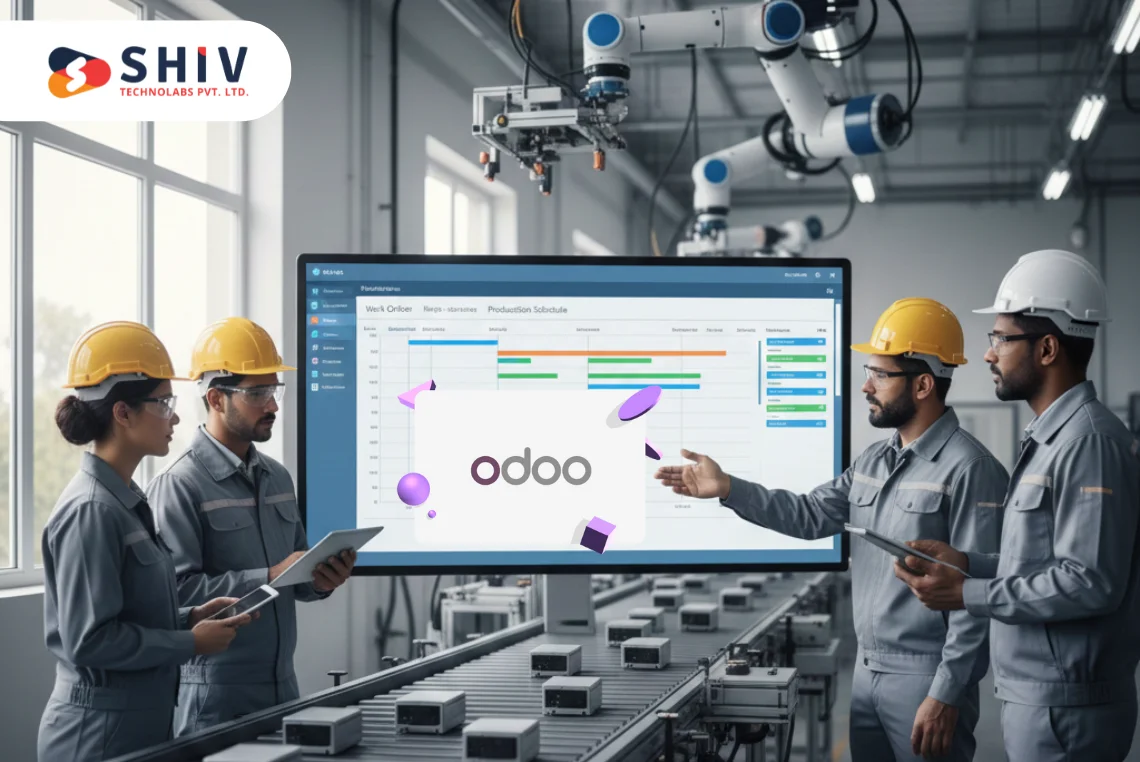Table of Contents
Enterprise Resource Planning is an information system that links organizational processes by overseeing and structuring data for businesses. The whole company is assured of homogeneity, clarity, and visibility by using ERP. It becomes extremely easy for companies to maintain their part of business data, meaning they provide accessible, coherent, and usable information to their staff members. Essential data is effectively processed so that duplication does not occur in ERP management systems thus guaranteeing the entire workflow.
What is ERP and Why is it so Important?

ERP stands for enterprise resource planning but if you want a perfect definition of ERP then it is basically a sumtotal of all the core business processes needed to run a company- finance, HR, manufacturing, supply chain, services, procurement, and others. ERP is meant for managing all these processes efficiently and in an integrated system. Maybe that’s the reason why it is often referred to as the “the central nervous system of an enterprise.”
At present ERP is delivered via the cloud and uses the latest technologies – such as artificial intelligence (AI) and machine learning. It offers intelligent automation, greater efficiency, and instant insight across the business. The more contemporary form of cloud ERP software connects internal operations with business partners and networks across the world. This certainly adds up to the competitiveness of a company by rendering collaboration, agility, and speed to the day-to-day business operations.
ERP is essential for the Finance department to close the books quickly. Sales needs ERP to manage all customer orders. Logistics relies on well-running ERP software to deliver the right products and services to customers on time. Accounts payable needs ERP to pay suppliers correctly and on time. Management needs instant visibility into the company’s performance to make timely decisions. And banks and shareholders require accurate financial records, so they count on reliable data and analysis courtesy the ERP system. So, this clearly signifies the role of ERP across the various departments in an organization and it cannot be denied under any circumstances.
The importance of ERP software to businesses is illustrated by the growing adoption rate.
According to G2, “The global ERP software market is projected to reach US$78.40 billion by 2026, growing at a CAGR of 10.2% from 2019 to 2026.”
ERP Development Process
When hiring an ERP development agency, you can mainly expect 6 stages in the ERP development process which are listed below:
Discovery and Initial Planning
This is the fundamental step that initiates the entire sales process and goes on after selling. Throughout this period, the project team is formed and conversations are made. It is from this cycle that the project plan comes up as a guiding document for other parts of any given project.
Project Design
Following certain specifications and acquaintance with current practices, this step proposes an elaborate design for new ERP software. This is one of the most pivotal steps in the creation of ERP applications. A design stage advice is to include users in the design process because they have a better understanding of the present-day business processes. Getting them on board during its design stage would lead to increased chances of installation and utilization by end users.
Development
The development phase aims to prepare the system for going live. This includes tasks such as finalizing any necessary modifications, uploading data, and making user manuals. Like other software development projects, ERP deployments begin with identifying the issue. Then, you write code.
Quality Assurance
After the development phase of an ERP has been completed, the testing/QA stage comes. Various testing processes are carried out by the team such as system, integration, security, unit, and functional tests. Before its release, ERP and CRM development engineers assess whether it is user-friendly and fulfills all original criteria. Then the client approves its use as well as makes it operational.
Deployment
The project and implementation team will assess the situation, and conclude if it is prudent to go ahead. The final data will be uploaded and double-checked before going live. The project team will train other personnel, allowing them to start using the new system.
Support and Updates
Once deployed by your ERP software development agency, they must keep the ERP implementation running to ensure that users are happy and the firm gets what it expects. During this phase, although the project team may still be in charge of the ERP system, its focus will now shift to collecting user feedback and changing the system according to what they want.
# Technology Stack for ERP Software Development

For you to get into the ERP system development journey, you need to talk with your technical expert about what programming language they will use. On the other hand, your ERP development team can make this decision without consulting you. Therefore, here are our suggestions on the technology stack that is needed when creating customized ERP.
When an ERP system targets mainly desktop platforms, Swift/Objective-C for macOS or C#/C++ for Windows are some of the best options for developers. To create a more flexible web-based project, the tech stack includes JavaScript, Bootstrap, Angular, Node.js, and some advanced frameworks such as jQuery. It is hard to put everything into one list since it is dependent upon various features as well as the specific needs of each project.
Primarily, JavaScript is a universal web programming language that we highly recommend. When it comes to the client-side build, several JavaScript libraries like Angular, React, and Vue can be used effectively. Whereas to manage server-side development services from all angles, Node.js would serve this purpose best.
# Cost Estimation of ERP Software Development
Multiple distinct factors directly influence the cost of developing an ERP system. It is inclusive of various factors such as costs for implementation, location of developers, maintenance, training, etc. There is no such thing as a universal cost estimate. You can expect to pay $150,000 to $750,000 for average ERP software development if you are a mid-sized company.
Depending on the system’s user count and extra expenditures like possible extras you desire.
The length of time taken by your ERP software development agency to finish off an ERP system greatly determines how much money it will take to develop ERP software.
Conclusion
To obtain a competitive advantage over other companies in an era characterized by rapid technological changes, it becomes important for firms to have an in-depth knowledge of ERM’s basic elements, general costs, and potential profits. Consequently, proper planning integration and following of recommended procedures may lead to achieving remarkable results in ERP systems installation processes paving the way for innovation as well as advancement opportunities. Also, hiring bespoke CRM system developers will ensure the best results for your business. Therefore, if you plan to invest in ERP systems, Shiv Technolabs is a leading enterprise software development company where the experts can guide you through the entire process and help increase your operational efficiency.




















